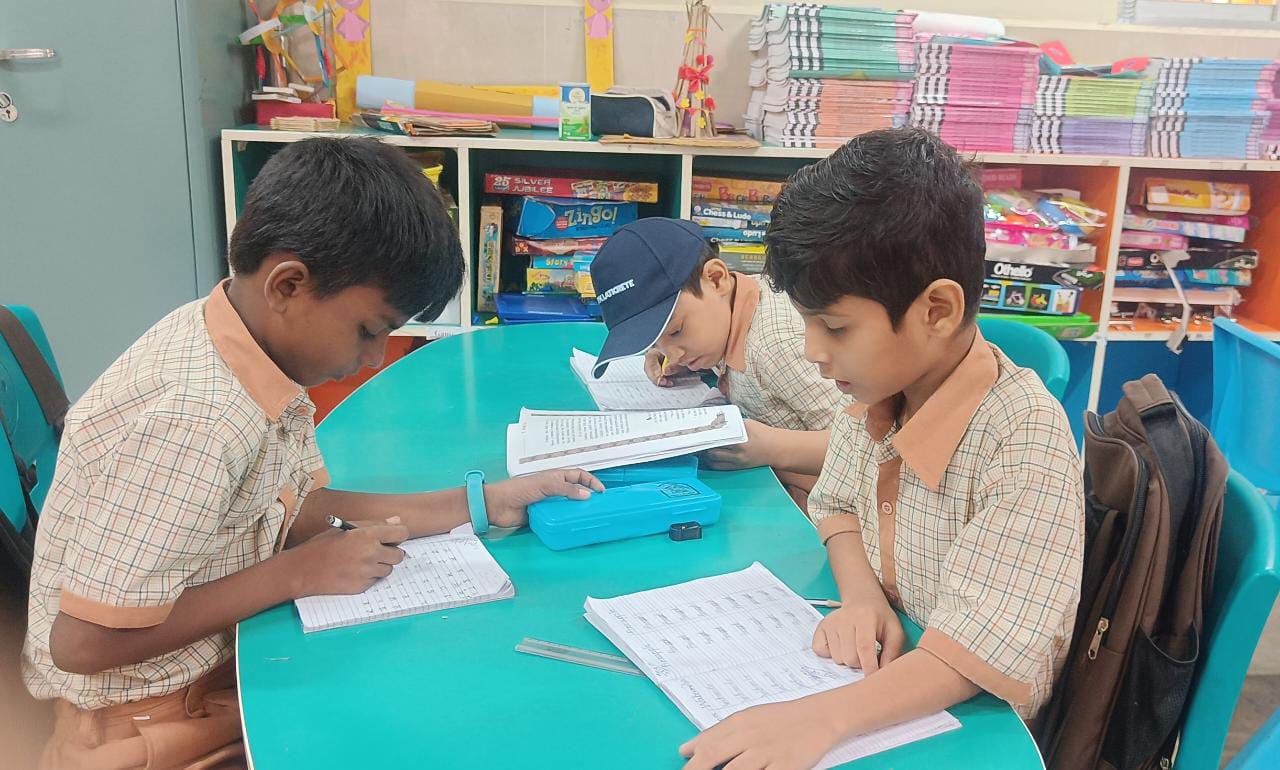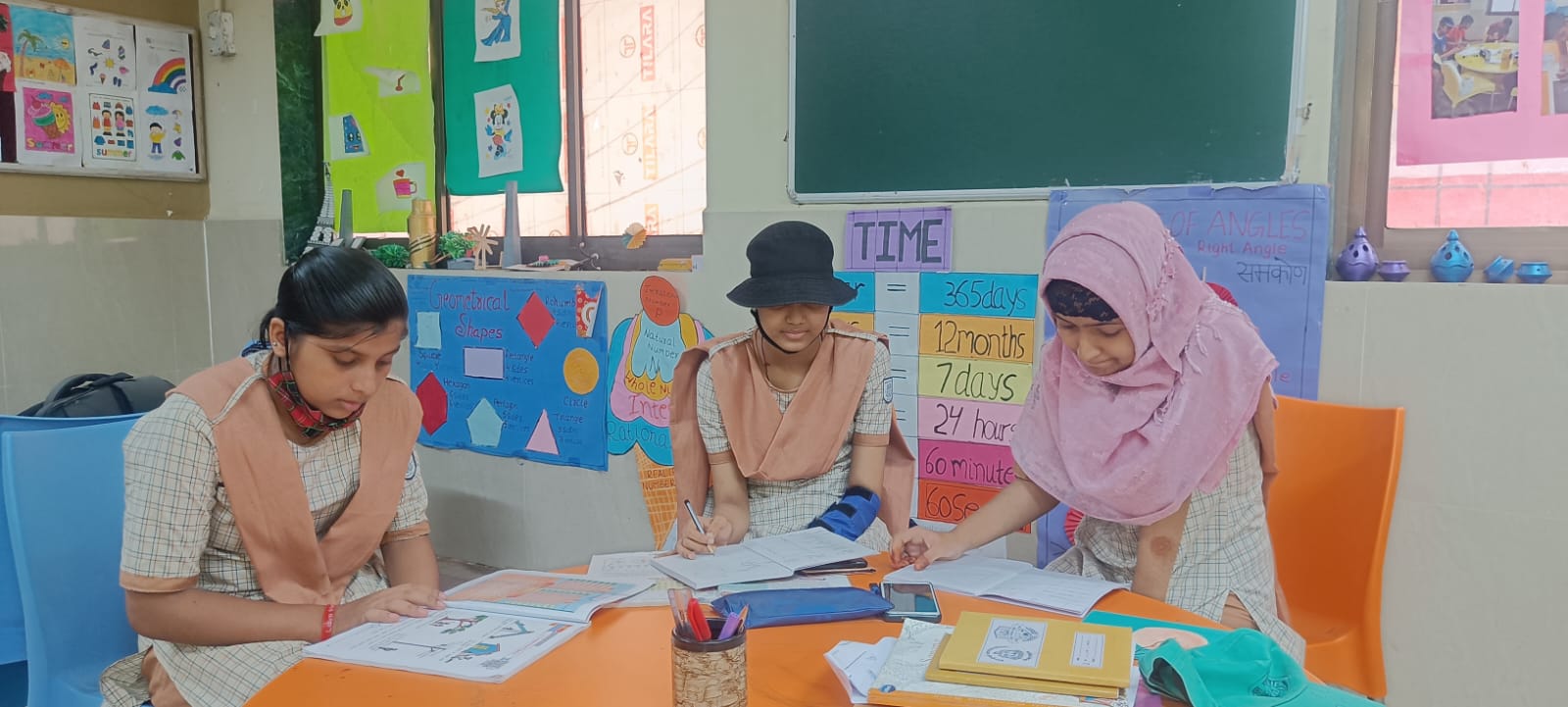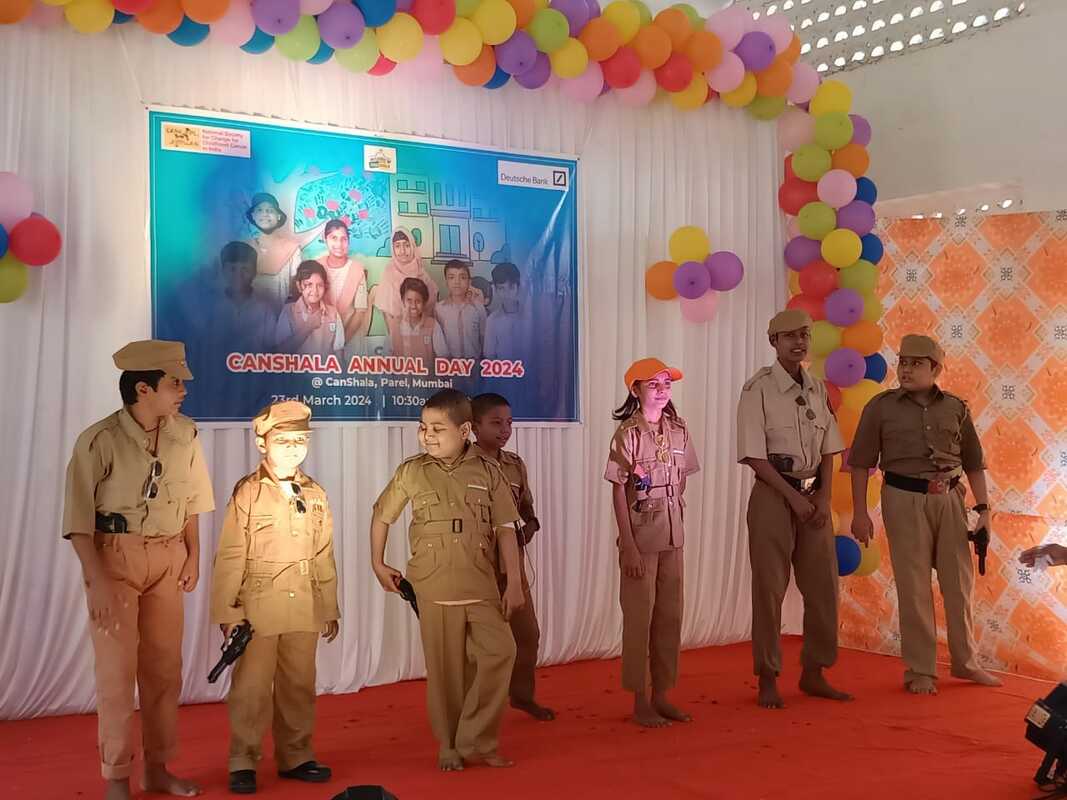CanKids Education Support
Ensuring every child with cancer continues their education journey through comprehensive support, scholarships, and innovative learning programs.
Learn MoreRight to Education
Children with cancer have a Right to Education. CanKids ensure there are no gaps in learning, through three unique services.
Education & Reintegration Impact
CanShala Schools
A formal school for children undergoing treatment, including CanShala Online launched during the lockdown.
Hospital Learning
School rooms in care centres and learning activity clinics at OPD of our partnering hospitals.
Financial Support
Financial assistance to children through general and merit scholarships and awards.
School in the Hospital Concept
CanShala combines the school service in a cancer hospital and local schooling adapted to the child's cancer treatment, keeping education alive during challenging times.
CanShala - School in Hospital
India's first formal school for children with cancer, launched in November 2012 at Tata Memorial Hospital, Mumbai.
Public-Private Partnership between the state government and CanKids, CanShala operates in Bai Jerbai Wadia Hospital for Children, Lokmanya Tilak Municipal General Hospital, and other cancer centers in Mumbai.
School Bus Service: CanKids provides school bus service for children staying in various hospitals and dharamshalas.
CanShala Online: Launched in October 2020 to help children continue their education remotely during lockdown. We have provided tablet computers to help children study, stay connected with their teachers, and also reach out for medical, food, or transport assistance.
Delivering both formal and non-formal education, CanKids operates Learning Activity Clinics in wards and OPDs of partnering hospitals across India, as well as our Home-Away-from-Home units.
Topic-Based Syllabus for children aged 3 to 14, covering the 3 "R"s, WASH-C, theatre, speech and vocabulary, and general knowledge.
Additional Services: DIY arts and crafts kits, conduct prayers, and organise outings and celebrations to make sure childhood is never on hold.
The National Childhood Cancer Excellence Award: Each year, we recognise and honour the indomitable courage of cancer survivors or those still undergoing treatment. Children are awarded cash prizes and trophies for their exceptional will and determination to succeed and excel, despite their battle with cancer.
CanKids Education Scholarship Program: For cancer survivors or those undergoing treatment, CanKids awards a scholarship to cover expenses for school or college admissions, exam fees, private tuition, school uniform, school books, transport, vocational courses, trainings, and career counselling.
Learning Activity Clinics
Comprehensive educational support delivered directly in hospital wards and OPDs, ensuring learning never stops during treatment.
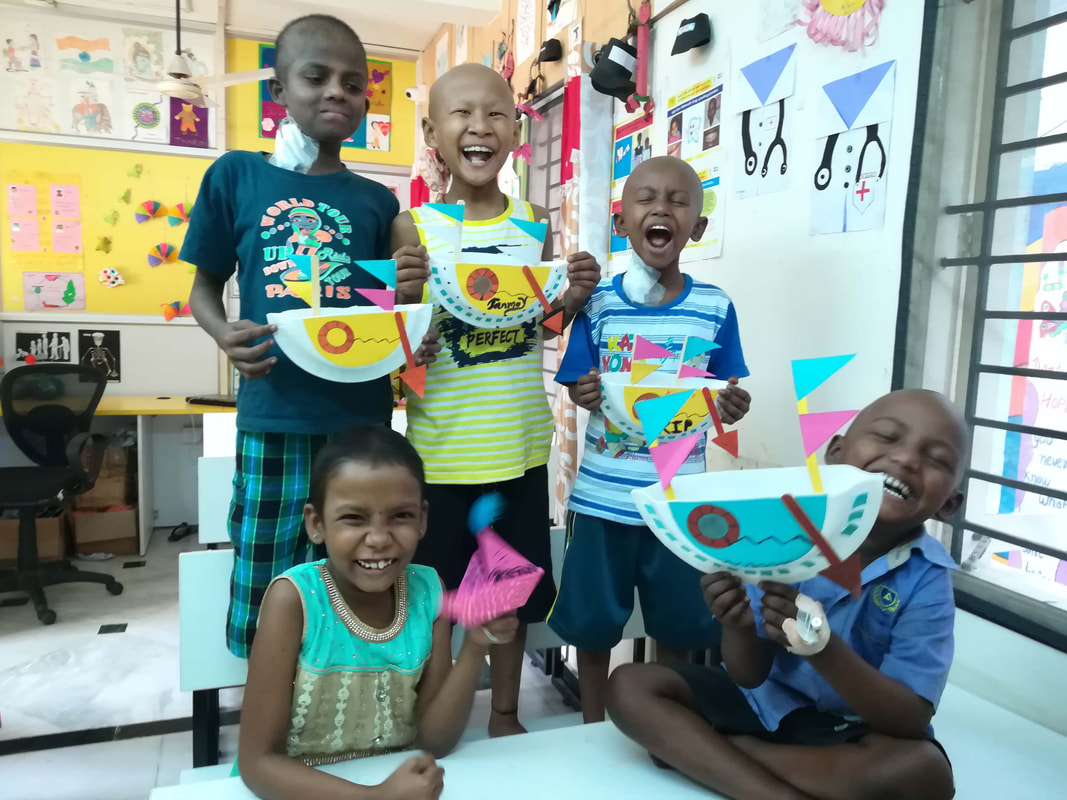
Awards & Scholarships
Recognizing excellence and providing financial support for educational advancement.
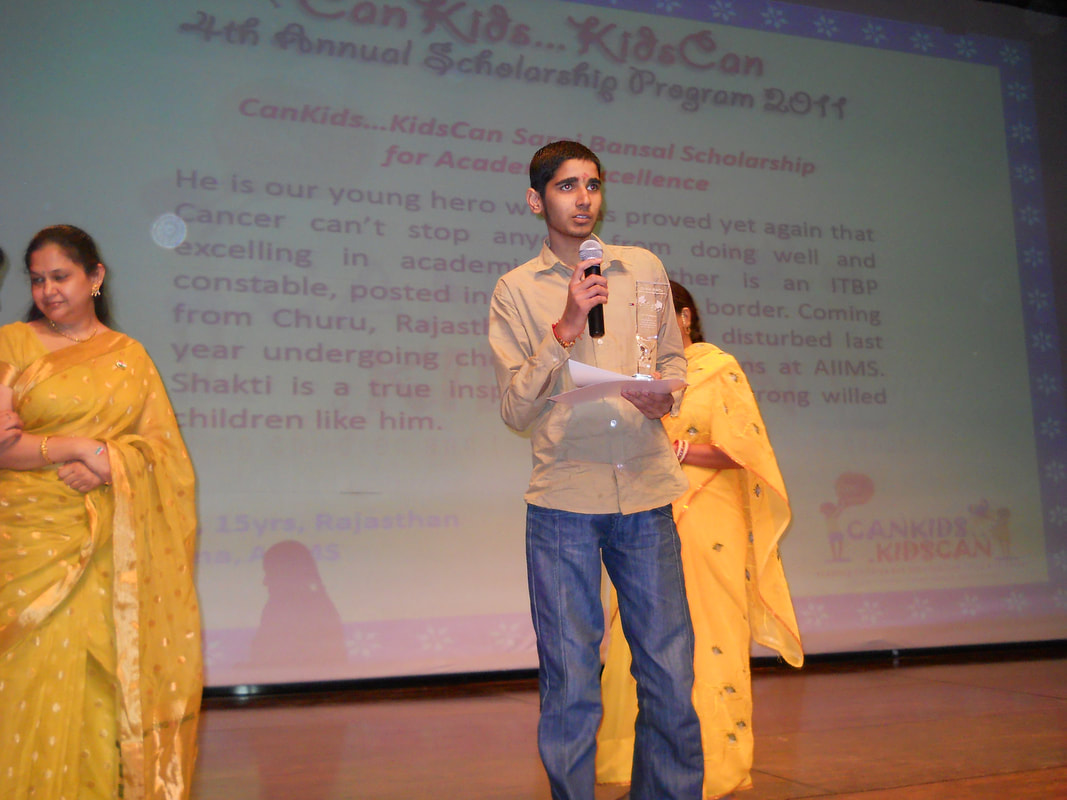
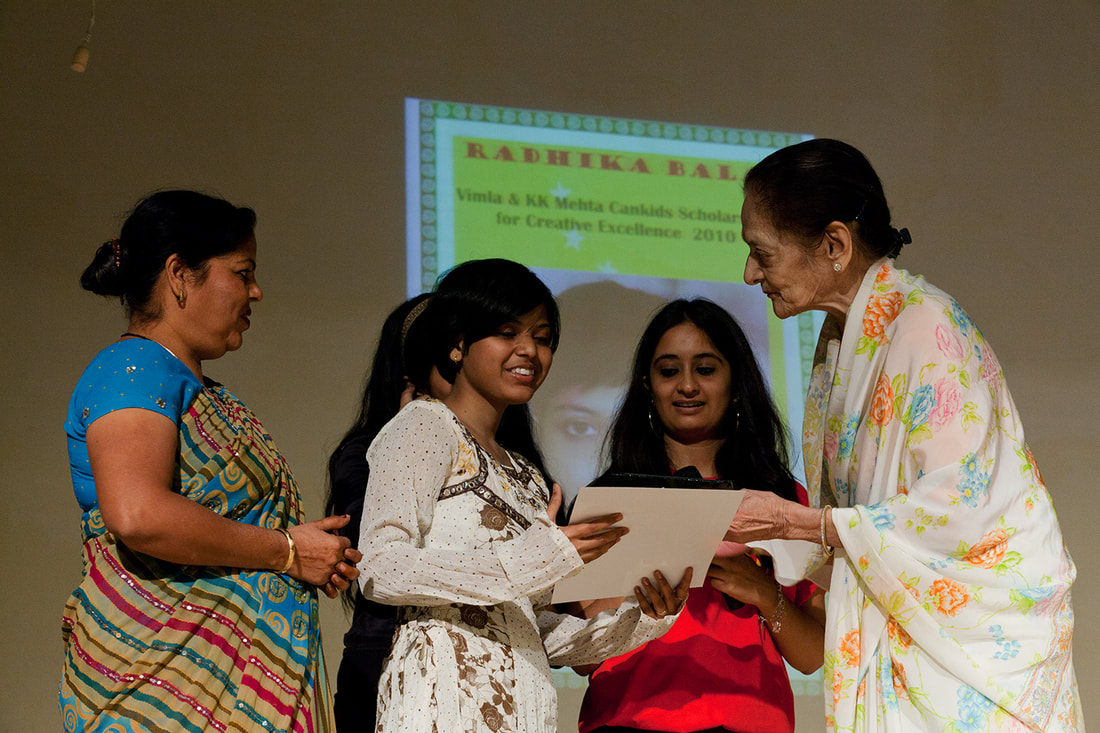
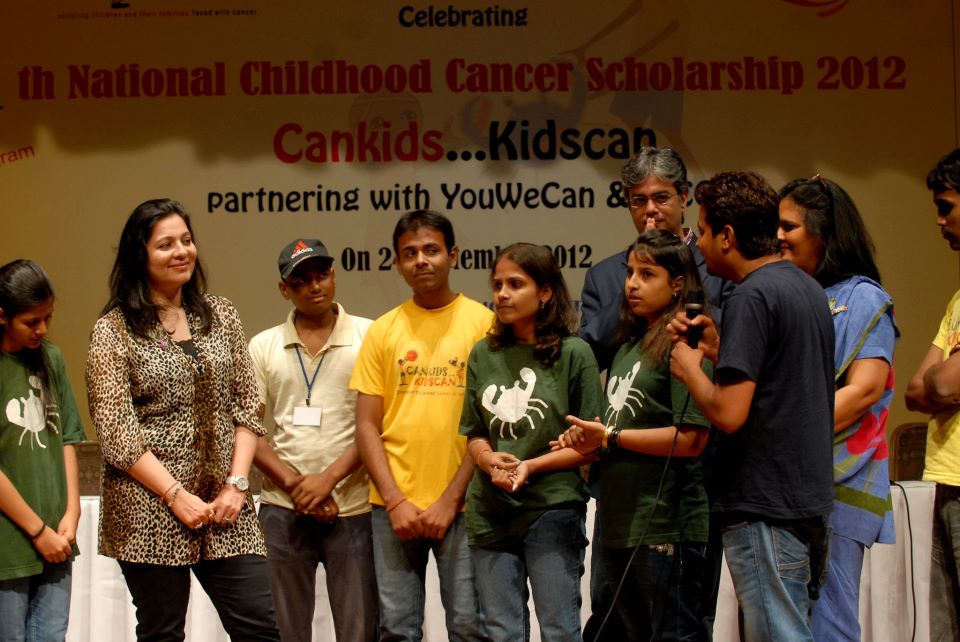
Effects of Cancer Treatment on Learning
Understanding the challenges children face and how we address them through specialized support.
The Developing Brain
The human brain is a marvellously intricate organ, undergoing continuous growth and development during childhood and adolescence. However, some issues stemming from cancer therapy might only surface years after the treatment has concluded.
Common Areas of Concern:
- Children might become increasingly distractible during class
- Have more trouble sitting still
- Have difficulty completing written work within the allotted timeframe
- Slower writing speed
- Problems with memory and concentration
- Slower information processing
- Difficulty with hand-eye motor coordination
- Difficulty navigating social situations, particularly with peers who may not be aware of their cancer history
Educational Accommodations:
- Sitting closer to the front of the classroom
- Reducing written assignments
- Adjusting test requirements like extra time
- Having a classroom assistant
- Employing a computer for typing instead of handwriting
- Using a calculator for maths
- Using recorded textbooks
- Having oral exams as an alternative to written exams
- Receiving additional support in maths, spelling, reading, and organisational skills
- Having a duplicate set of textbooks for home (a good practice for any child undergoing cancer treatment)
Important Note: It's important for parents and teachers to recognise the potential educational challenges associated with cancer treatment. By staying vigilant, they can closely monitor at-risk children and adolescents, providing additional support as necessary.
Understanding Learning Challenges
Cancer treatment can impact education in various ways. We address these challenges with tailored support and interventions.
Attention & Focus
Helping children maintain concentration and attention span during and after treatment.
Memory & Processing
Supporting cognitive functions including memory, concentration, and processing speed.
Social Integration
Navigating social situations, particularly with peers who may not be aware of cancer history.
Personalised Education Plans
Teachers at CanShala prepare Personalised Education Plans for each child. These plans are developed according to the child's treatment and current educational level. This helps the child to learn at their pace and style of learning. During the reintegration process this plan is shared with the child's school so that the school teachers can teach accordingly.
Educational Support Strategies
Proven interventions and accommodations that help students reach their full learning potential despite treatment challenges.
Seating Arrangements: Sitting closer to the front of the classroom for better engagement and reduced distractions.
Assignment Modifications: Reducing written assignments and providing alternative ways to demonstrate knowledge.
Classroom Support: Having a classroom assistant to provide additional help when needed.
Duplicate Resources: Providing a duplicate set of textbooks for home use (a good practice for any child undergoing cancer treatment).
Computer Usage: Employing a computer for typing instead of handwriting to overcome motor coordination challenges.
Calculator Support: Utilising calculators for maths to focus on concepts rather than computational speed.
Audio Learning: Using recorded textbooks and lectures for better comprehension and review.
Digital Tools: Accessing various assistive technologies to support different learning styles.
Extended Time: Adjusting test requirements like extra time to accommodate processing speed differences.
Alternative Formats: Offering oral exams as an alternative to written tests when appropriate.
Specialized Support: Receiving additional support in maths, spelling, reading, and organisational skills.
Flexible Evaluation: Adapting assessment methods to fairly evaluate student understanding despite physical or cognitive challenges.
Meeting with Schools: The first step involves arranging a meeting with the school to devise adjustments to the student's educational plan. This can be an informal discussion or a more structured process.
Formal Process Benefits: The formal approach obligates public schools to implement the plan, with legal recourse available if it's not followed.
Private School Cooperation: While private schools aren't bound by the same regulations, they often cooperate willingly to accommodate students' needs.
Plan Implementation: Sharing personalized education plans to ensure teachers can adapt their teaching methods accordingly.
Technology Integration
Computers for typing, calculators for math, and digital tools to overcome physical limitations.
Flexible Timing
Extended time for assignments and tests, accommodating treatment schedules and energy levels.
Audio Learning
Recorded textbooks and lectures to support different learning styles and processing needs.
Peer Support
Facilitating connections with classmates and creating understanding environments.

